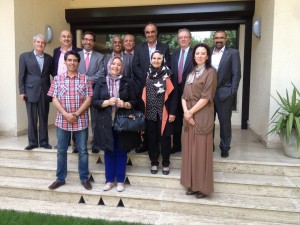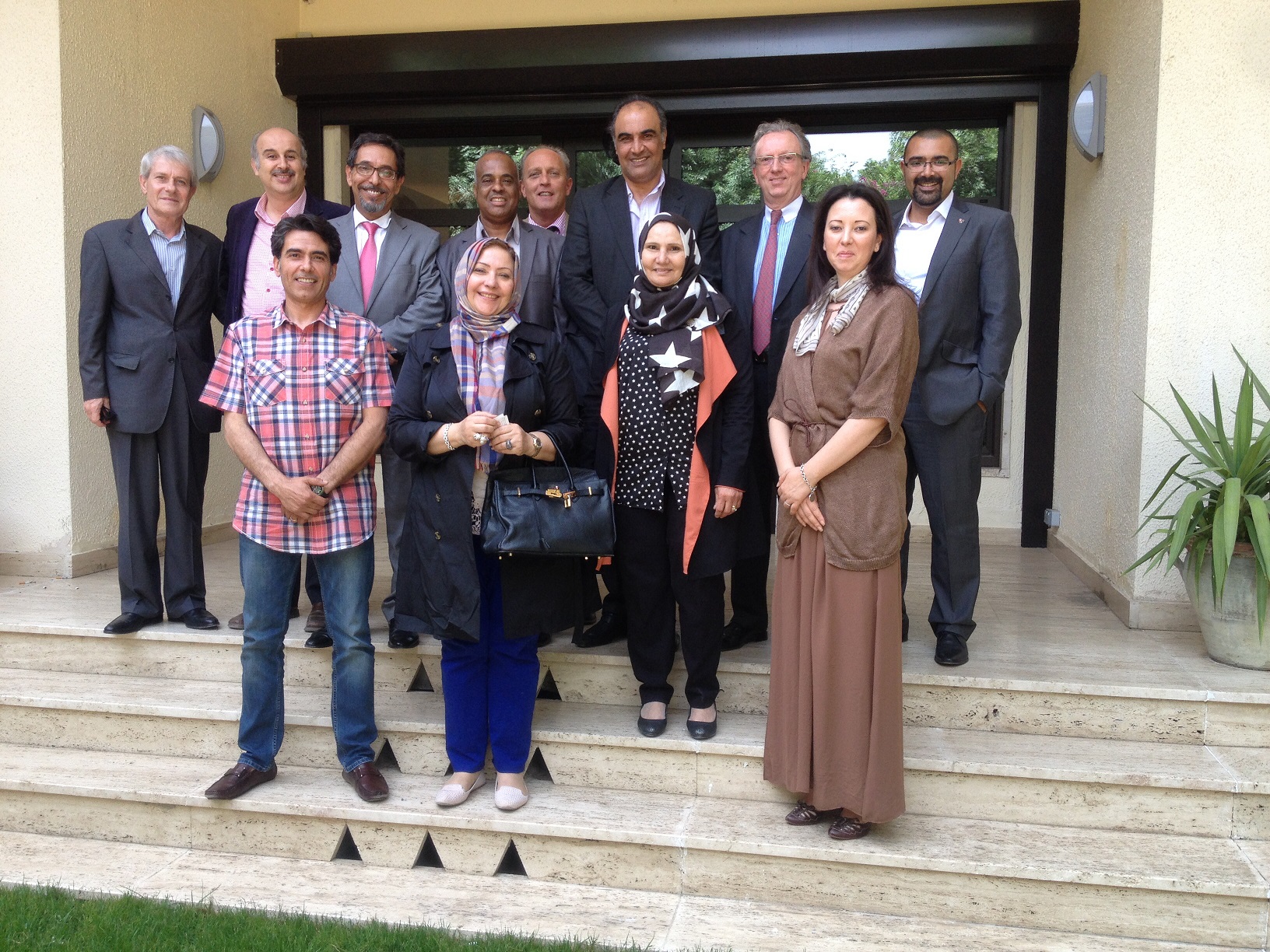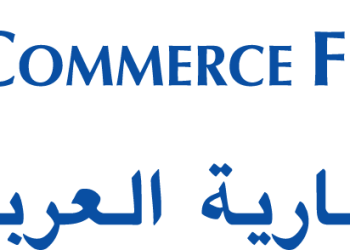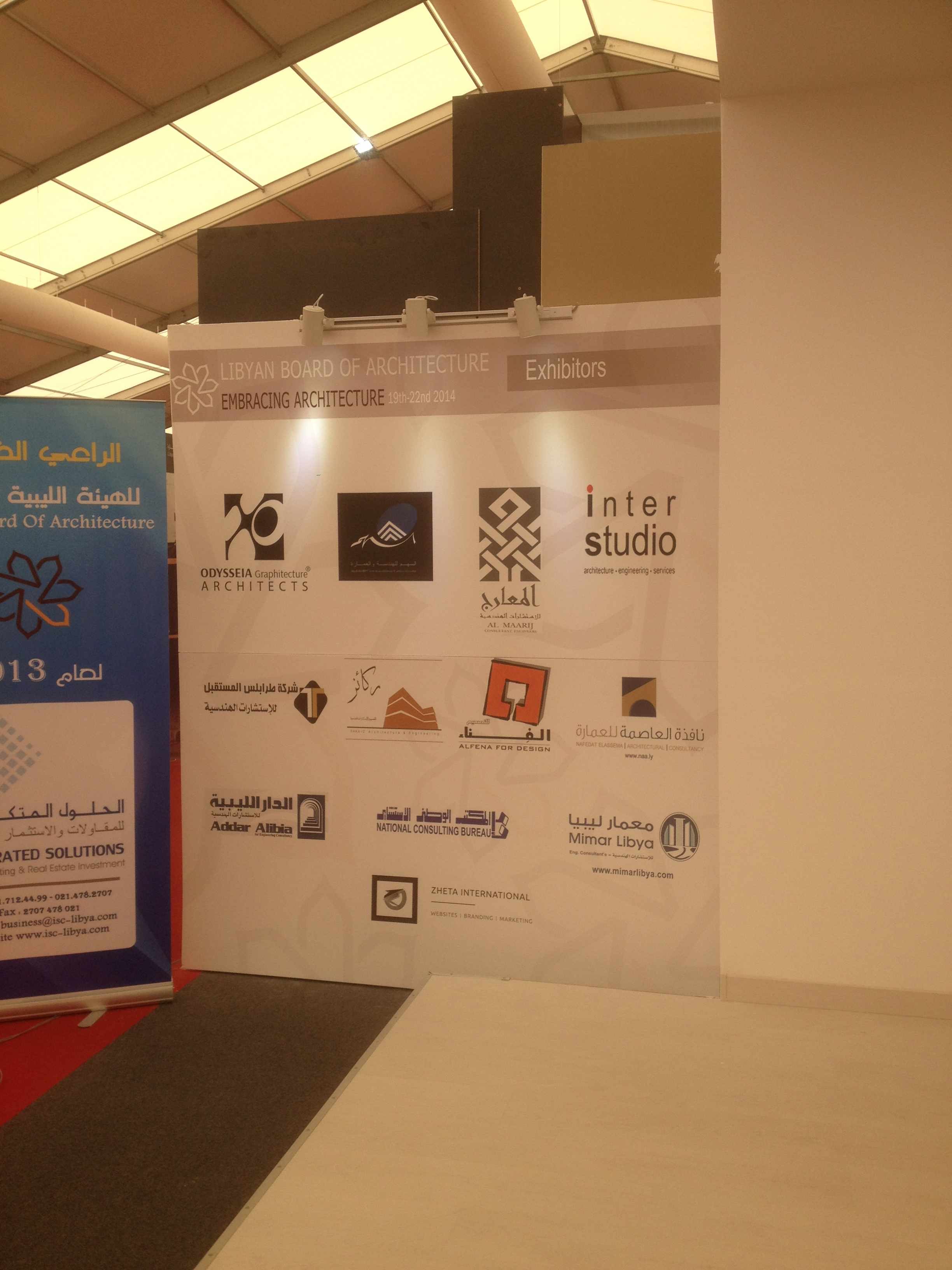By Sami Zaptia.

Tripoli, 26 May 2014:
A number of NGOs from eastern, western and southern Libya, including women’s groups . . .[restrict]were invited to lunch at the French embassy as guests of French ambassador Antoine Sivan on Saturday. The NGOs included the National Support Group (NSG-Libya).
At the meeting the current situation in Libya was discussed as well as the status of NGOs and civil society in Libya, including the needs of NGOs and the type of assistance that France could provide to Libyan NGOs.
In politics, a plethora of subjects were discussed including the latest situation viz a viz the General National Congress (GNC), the Abdullah Thenni government, Prime Minister-elect Ahmed Maetig, militias, thuwar, political parties, the forthcoming House of Representatives elections, the Constitutional Drafting Committee, legitimacy, democracy, military dictatorship, extremism, security, the Hafter phenomena, women’s issues, as well as others, were all discussed frankly during an extended lunch.
The NGOs expressed their disappointment at the lack of help they had received from the Libyan government, the Ministry of Culture and the department specifically tasked with organizing Libyan NGOs. They invited the ambassador to encourage the Libyan authorities to help Libyan NGOs with an organized Libyan funding programme, rather than indirectly encouraging international funders to support Libyan NGOs – by failing to fund them themselves.
The Libyan NGOs pointed out the size of the budgets given by the GNC to the successive government since 2011 were huge – with billions spent unsuccessfully on subsidies, wages, the militias, the army and police – with little in return. It was pointed out that a fraction of these budgets would have funded Libya’s NGOs for a few years. The NGOs invited the ambassador to remind the Libyan authorities of the importance of the existence of strong NGOs in any vibrant democracy.
The NGOs expressed the view that whilst it was acceptable to accept funding from international donors in an organized and coordinated manner, given Libya’s GDP, surplus and reserves , Libyan NGOs should not be put in the situation of accepting funds from international donors.
Nevertheless, the NGOs took the opportunity to express their gratitude to those international NGOs that had contributed with funding for numerous useful projects since 2011.
It was also pointed out, for example, that despite promises by the Mahmoud Jibril, Adelrahman Al-Kib and Ali Zeidan governments to help NGOs with offices or finances, none of the transitional Libyan governments had taken their responsibilities towards NGOs seriously.
With regards to the providing office space, which is usually the biggest single expense for NGOs, it was pointed out ever since the Jibril government, it was promised that all former Qaddafi-era Revolutionary Guards offices would be handed over to Libyan NGOs to use jointly as offices. This was never implemented.
It was also pointed out that the Civil Society department had, three years after the 2011 revolution, even failed to compile a national list of NGOs and make it available online, despite numerous promises.
The NGOs encouraged the French authorities to organize cultural events, including musical concerts such as the very successful concerts organized by the Italian Cultural Institute. They also encouraged the organization of sports events, including leading French teams visiting Libya, and vice versa.
[/restrict]






